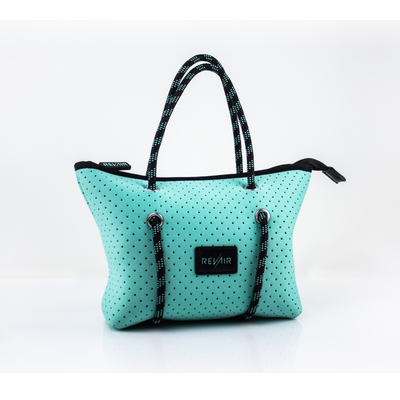
Discover 4 Ways Your Hormones Affect Hair Loss (And How to Add Volume Like a Goddess)

Life is a journey of growth. As we take on new challenges, redefine ourselves, and continually stretch beyond our limits, change is inevitable. However, what many natural hair beauties may not know is that life's changes don't simply impact your daily grind. They can also have a profound effect on your hair! Hormones and hair loss are a common issue that many curly hair goddesses face.
Thinning, fraying, and brittleness can develop seemingly out of nowhere. While the cause of hair loss may seem mysterious at first, hormonal changes are often the culprit. Unlike life's other adventures, this is one change you don't have to accept. Understanding hair loss is key when it comes to nurturing your hair as part of your health and wellness routine.
1.) What Causes Hair Loss?
The endocrine system plays a special role in managing hair loss. This unique system of organs comprises the ovaries, thyroid, pancreas, and other glands that all share one common job -- producing hormones. These hormones help our body regulate vital functions throughout every life stage. Disruption occurs when hormonal imbalance tips the scales of our carefully maintained system. Too much or too little of a specific hormone can cause hair growth or hair loss. Diffuse hair loss, also known as telogen effluvium, is among the most common side effects of hormonal imbalance and is defined as excessive hair loss across the scalp.
Sophia Emmanuel, Certified Trichologist from Crown Worthy Trichology Studio, has a few words of comfort when it comes to hormones and hair loss.
"No one will go bald with diffuse hair loss because the hair is replaced, but the hair can look and feel thin because the rate of hair growth is slower than the hair loss. Normally our hair sheds during the telogen stage about 50 to 100 per day. Telogen hair appears on clothing, in the shower, and is what we see daily. The abnormal hair loss takes place when anagen hairs of the hair growth cycle prematurely shift to the telogen stage, which is the resting, and hair fall cycle. When there is an abnormal amount of hair follicles in the telogen stage diffuse hair loss occurs."
Hormones and hair loss are a balancing act. When our body is feeling its best and our hormones are properly regulated, our hair is at its healthiest too.
Take a closer look at 4 ways your hormones affect hair loss. Additionally, here's what you can do to add volume and fullness through whatever changes life throws your way. Change happens, but flawless hair is the one thing you can rely on with your friends at RevAir.
1.) Pregnancy
Expectant mamas know better than anyone that growing a human is tough work! It's no surprise that the effects of pregnancy can even influence hair texture and fullness. Hormones and hair loss are a common issue faced by many pregnant fashionistas. At first, pregnant women may experience the much-talked-about "baby glow." Skin appears dewy and hair appears thicker with the help of the initially high estrogen levels during the early trimesters.
However, you may begin to notice a change after the first three months when estrogen, along with all of our other hormones, drops rapidly back to normal levels. Think of this as a hormonal rollercoaster with your hair in the front seat! Hair shedding will occur anywhere from 3-6 months. Don't panic! We promise you and your baby won't need matching beanies. This kind of hair loss is temporary and your lovely locks will soon return to normal.
Some of the ways you can prevent pregnancy hair loss in the meantime include avoiding tight protective styles, eating a diet rich in minerals and folate (think fruits and veggies), using wide-tooth combs, minimizing heat styling, and treating yourself and your hair to an essential oil massage once a week. Stimulate your scalp by working in rich, nutrient-dense serums tailored to your unique hair texture.
If you're looking to supplement your healthy pregnancy diet, The American Pregnancy Association recommends the following supplements to combat hair loss.
- Vitamin B complex
- Biotin
- Vitamin C
- Vitamin E
- Zinc
Most importantly, remember that pregnancy-related hair loss happens to the best of moms! Don't stress and avoid tearing your hair out in frustration.
2.) Menopause
On the other side of the life change spectrum, menopause can bring about hormonal imbalances. During menopause, estrogen levels decrease which often causes a rise in cortisol -- the stress-producing hormone responsible for hair loss. Androgenetic alopecia may occur during menopause. While this term may sound alarming and "sciencey," androgenetic alopecia is simply hair loss as a natural result of your body's fluctuations. Understanding menopause takes away the dreaded fear of entering this next stage of life. Like a new hairstyle, every chapter brings about exciting shifts in the norm.
Prevent hair loss during menopause by consulting with your doctor beforehand to determine the best course of treatment for you. This may include prescription medication, iron supplements, or simple dietary modifications to ensure your hair stays as long and luxurious as your high school homecoming photos.

3.) Stress
Let's face it, stress is the worst. From the toll anxiety takes on our mental health to the frustrating physical side effects, it can be difficult to cope with hormonal imbalance during high tension times. Stress triggers five key hormones to overproduce and release cortisol into the bloodstream. This imbalance of hormones causes diffuse hair loss from time to time. You may notice more hair in your brush or simply a dull, lackluster, and thin quality to your once radiant locks. When stress overstays its welcome and lingers in the body, a sharp drop in hormone levels can occur. This leads to hypoglycemia and poor blood sugar regulation which can have an additional impact on hair thinning.
Be a proactive wellness warrior by managing stress before it becomes a problem. Take steps to schedule self-care throughout busy weeks. Guided meditations, yoga classes, and treating yourself to your favorite hair and beauty products are great ways to take care of your body and spirit. Adding a supplement like chromium and zinc may support healthy blood sugar levels. Complex B vitamins are also excellent at supporting stress management, alongside fish and flaxseed oil.
Also, it's a great idea to prioritize sleep, even on weeks when you're extremely busy. Lack of sleep exacerbates stress levels and furthers hair loss. If you're having trouble getting some shut-eye, try a natural sleep supplement like melatonin. Rest easy, sleeping beauty! Your bedhead is sure to be red carpet-worthy.
4.) Medications and Health Changes
Sometimes the unexpected happens. Introducing a new medication, rapidly losing or gaining weight, or simply adjusting to a new routine can all cause extreme hormonal fluctuations. These changes inevitably affect hair loss when it comes to maintaining your beautiful curls.
Check in with your doctor regularly if you find yourself experiencing unexplained hair loss and be prepared to adjust or supplement medications as recommended. Many beauty lovers find it helpful to keep a diary or note sheet of changes to discuss with their doctor in terms of skincare woes and hair hassles. Oftentimes these concerns get pushed aside or minimized for fear of sounding silly. Rest assured, any small changes are worth bringing up, even if you're merely looking to find fewer hair clumps in the shower drain!
When introducing new habits like a fresh workout routine or a significant dietary change, do so slowly. Remember to be kind to your body. Rapid and sudden shifts won't give your hormones time to adjust and get on board with the new routine. This can lead to a spike or drop in blood sugar which contributes to diffuse hair loss and often undermines any fitness goals you may be aspiring to.
If you find that your hair is naturally prone to shedding, you may be more sensitive to hormones and hair loss. Genetic predisposition does not mean you must accept thinner hair and ignore the telltale signs of hair loss. Recognizing this predisposition simply means you have the powerful beauty tools at your disposal to combat hair loss. Opt for alternatives to heat styling that rely on innovation rather than high temperatures or harsh chemicals. RevAir's strengthening reverse air hairdryer is a must for maintaining fullness, body, and shine. You may also want to stock up in high-quality, luxury hair products for curly hair. Tailored with type 3 hair and type 4 hair in mind, these outstanding, healthy hair shampoos, conditioners, serums, and sculpting gels are the ultimate supporters of radiant curls.
Not sure what the best products are for your hair type? Ask the experts at RevAir and follow along for more great natural hair care tips!

















